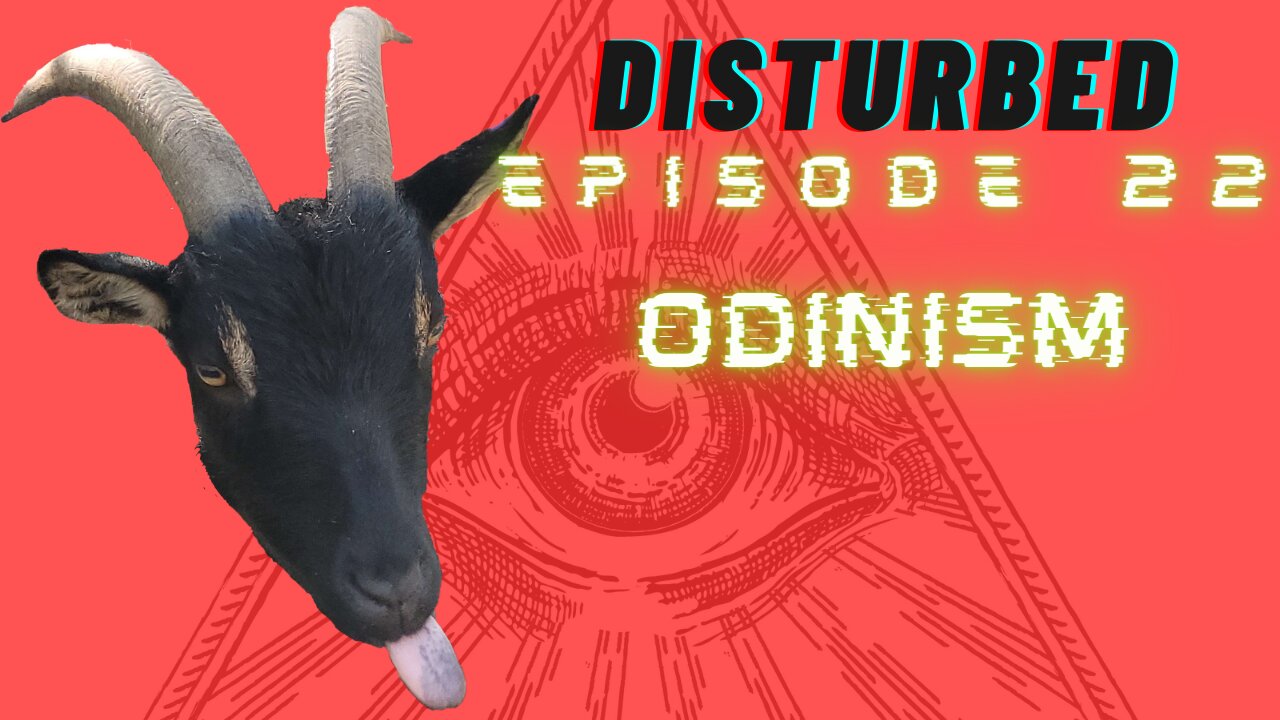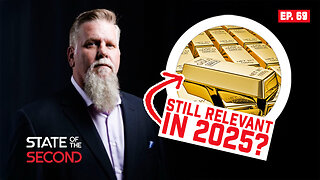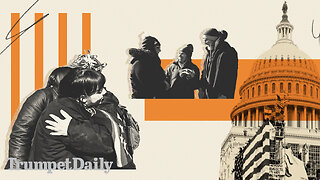Premium Only Content

Disturbed EP. 22 - Odinism
Odinism, also known as Ásatrú or Heathenry, is a modern pagan religious movement that seeks to revive and reconstruct the polytheistic belief systems of the ancient Germanic peoples, particularly the Norse and Icelandic traditions. The central figures in Odinism are the deities of the Norse pantheon, with Odin, the Allfather, often taking a prominent role.
Key aspects and beliefs of Odinism include:
Polytheism: Odinism involves the worship of multiple deities, including Odin, Thor, Freyja, Loki, and others. These gods and goddesses are seen as both powerful beings and symbolic representations of natural forces.
Ancestor Worship: Many Odinists also practice ancestor veneration, believing that their ancestors play a significant role in their lives and should be honored.
Connection to Nature: Nature plays a vital role in Odinism, and adherents often emphasize a strong connection to the natural world. Sacred sites, such as groves or outdoor spaces, are used for rituals and gatherings.
Runes: The runic alphabet is considered sacred in Odinism, and runes are often used in divination and magical practices. The symbols have both linguistic and mystical significance.
Blóts: Blóts are ritual sacrifices or offerings made to the gods, ancestors, or other spirits. These rituals often involve the sharing of food and drink.
Personal Responsibility: Odinism places a strong emphasis on personal honor, integrity, and responsibility. Adherents are encouraged to live virtuous lives and uphold the values of their tradition.
It's important to note that Odinism, like other pagan belief systems, encompasses a wide range of beliefs and practices, and there is no central authority or standardized doctrine. As a result, the beliefs and rituals of Odinists can vary widely from one individual or group to another.
Additionally, Odinism has been associated with various white supremacist and neo-Nazi groups, particularly in Europe and North America. However, it's essential to distinguish between the religious beliefs and practices of Odinism and the ideologies of hate groups that may misuse the symbolism and language of Odinism for their own purposes. Many Odinists disavow any association with such extremist ideologies and work to promote a more inclusive and tolerant form of the faith.
-
 1:39:03
1:39:03
Benny Johnson
4 hours ago🚨 Trump Live Right Now From Oval Office in First Fox News Interview as President | ‘Watch This…’
90.7K90 -
 2:10:04
2:10:04
Barry Cunningham
5 hours agoLIVE WATCH PARTY: PRESIDENT TRUMP INTERVIEW WITH SEAN HANNITY!
31.3K15 -
 1:37:19
1:37:19
Glenn Greenwald
8 hours agoAs Trump Vows to Restore Free Speech, Harvard Just Assaulted It; Columbia Professor Forced Out Over Israel Criticisms | SYSTEM UPDATE #394
73.7K124 -
 58:45
58:45
The StoneZONE with Roger Stone
4 hours agoTrump Pardons Ross Ulbricht | The StoneZONE w/ Roger Stone
60K11 -
 1:57:31
1:57:31
2 MIKES LIVE
13 hours ago2 MIKES LIVE #170 with special guest Rep. Buddy Carter (R-GA)
52.7K3 -
 1:02:58
1:02:58
Flyover Conservatives
23 hours agoA Doctors Response to Trump’s First Moves: W.H.O. and FDA - Dr. Troy Spurrill; A REAL-LIFE Approach to Health and Wellness Transformation - Kellie Kuecha Moitt | FOC Show
69.7K6 -
 41:50
41:50
State of the Second Podcast
8 hours agoWhat do Gold and Guns have in common?
31.1K4 -
 1:01:26
1:01:26
PMG
5 hours ago $1.58 earnedLibs In FULL PANIC Since Trump Took Office! Creating a Faith to Fit their Agenda
22.4K9 -
 7:09:22
7:09:22
Dr Disrespect
13 hours ago🔴LIVE - DR DISRESPECT - TRIPLE THREAT CHALLENGE - EXTREME EDITION
253K33 -
 55:00
55:00
LFA TV
13 hours agoThe End of the January 6 Hoax | TRUMPET DAILY 1.22.25 7pm
44.8K11